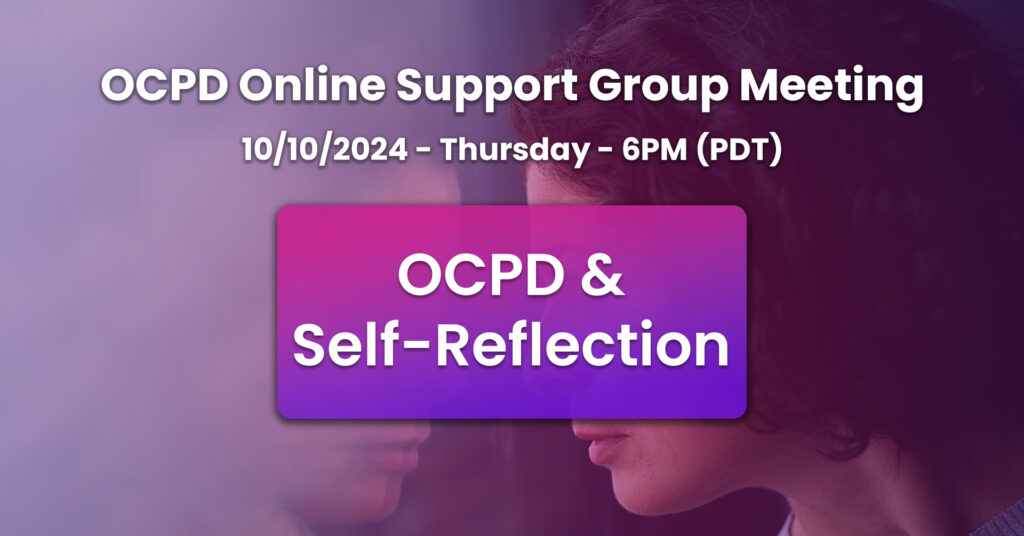If self-reflection were ever a competitive Olympic sport, I’d like to think that I’d probably take gold! 😝 However, it wasn’t until I started prepping for this topic that I fully realized how it can be a double-edged sword.
On one hand, I’ve greatly benefited from self-reflection in the context of regular journaling and talk therapy while, on the other hand, I’ve also suffered immensely from rampant rumination, comparison, and negative self-talk over the course of my life. I’ve found I naturally skew toward more introspection and sometimes that can allow me to discover the source of my emotional distress, while other times it might look more like wallowing in self-pity and negativity. Ultimately, I believe self-reflection, when engaged in consciously, offers us the ability to develop greater self-awareness and emotional intelligence which, in turn, can also improve our interpersonal relationships.
https://en.wikipedia.org/wiki/Self-reflection
Wikipedia: Self-Reflection
Self-reflection is the ability to witness and evaluate one’s own cognitive, emotional, and behavioural processes. In psychology, other terms used for this self-observation include ‘reflective awareness’, and ‘reflective consciousness’, which originate from the work of William James.[2][3]
Self-reflection depends upon a range of functions, including introspection and metacognition, which develop from infancy through adolescence, affecting how individuals interact with others, and make decisions.[4]
As a small aside: one interesting aspect of self-reflection is how it relates to metacognition, “an awareness of one’s thought processes and an understanding of the patterns behind them.” I find the whole concept of metacognition to be fascinating development of human consciousness. We get to think about our thoughts?! How trippy! How nebulous! It takes a great deal of discipline to steer our minds towards constructive self-reflection and away from the pitfalls of rumination.
https://www.verywellmind.com/self-reflection-importance-benefits-and-strategies-7500858
Note: the following is an abridged copy, I strongly encourage you to read the full webpage if you have the time!
The Importance of Self-Reflection: How Looking Inward Can Improve Your Mental Health
What is it?
“Self-reflection involves being present with yourself and intentionally focusing your attention inward to examine your thoughts, feelings, actions, and motivations, says Angeleena Francis, LMHC, executive director for AMFM Healthcare.”
“Without self-reflection, you would continue to do what you’ve always done and as a result, you may continue to face the same problems you’ve always faced.”
Benefits of Self-Reflection
These are some of the benefits of self-reflection, according to the experts:
- Increased self-awareness
- Greater sense of control
- Improved communication skills
- Deeper alignment with core values
- Better decision-making skills
- Greater accountability
When Self-Reflection Becomes Unhealthy
Self-reflection is a healthy practice that is important for mental well-being. However, it can become harmful if it turns into rumination, self-criticism, self-judgment, negative self-talk, and comparison to others, says Wilson.
So what questions would even be helpful regarding self-reflection? A quick google search returned several extensive lists so perhaps a general note of caution about not diving straight into the metaphorical deep end and overwhelm yourself right off the bat. Like most growth disciplines, self-reflection is something that we can slowly develop our capacity for over time. That being said, here are some great questions from the following link:
(Self) Reflection Questions
https://positivepsychology.com/introspection-self-reflection
- Using 10 words, describe yourself.
- I couldn’t imagine living without…
- Am I letting matters that are out of my control stress me out?
- What am I really scared of?
- What do I want most in life?
- Am I putting enough effort into my relationships?
- If my body could talk, it would say…
- What do you love about life?
- Name what is enough for you.

![[Zoom Meeting] OCPD & Disgust 🤢](https://www.youmeandocpd.com/wp-content/uploads/2023/12/2023-12-14-OCPD-Disgust-1024x536.jpg)
![[Zoom Meeting] Reflecting on the Year 2023 📝🔍](https://www.youmeandocpd.com/wp-content/uploads/2023/12/2023-12-28-OCPD-Reflecting-on-the-Year-1024x536.jpg)